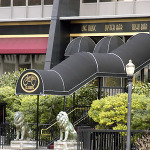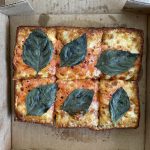From Robin Garr’s 30 Second Wine Advisor
For many wine lovers, one of the most frustrating things about enjoying wine from a restaurant wine list is the significant “markup” that management tacks on to the price.
While the practice varies from state to state and around the world, in most states of the U.S. restaurants routinely set the wine list price at three to four times the wholesale price they pay for a bottle. As a result, diners selecting from the list can expect to pay at least twice as much for the wine of their choice as they would for the same wine in a retail store.
A bottle of Louis Jadot 2006 Beaujolais-Villages, for example, might command $10 at full retail, although it’s often discounted for less. At a restaurant, look for it to cost $20 or even $25. In either case, the vendor likely paid $5 to $7 for it at wholesale, offering the restaurant a tidy profit indeed.
Restaurants justify this practice on the basis of cost: Wine inventory, storage, glassware and service all add legitimate costs, and it’s fair to recover that. Indeed, in a free-market system, there’s no use arguing about the restaurateur’s right to take a fair profit.
Still, a $25 price tag on a $5 bottle seems to be pushing it … yet it’s not uncommon. It’s no wonder that wine lovers enthusiastically embrace BYO where the law allows; and that many more elect to pass on wine in favor of beer or a non-alcoholic beverage when dining out.
Accordingly, I’m watching with considerable interest as a local restaurant rolls out a cheeky challenge to wine-list practice. Louisville’s Bristol Bar & Grille, celebrating its 30th anniversary, announced that effective immediately it will offer its entire wine list at twice each wine’s wholesale price, effectively matching full-retail wine shop prices.
As a practical matter, this means that the Bristol’s bottle price for Heidsieck Champagne will drop from $57 a bottle to about $33. Trevor Jones “Virgin” Australian Chardonnay, $31 on the old list, now sells for $19. The sought-after Cakebread Chardonnay, which sells around $70 at many Louisville eateries, now goes on the Bristol’s list at $38.
“This program allows wine lovers to broaden their horizons and will allow people to experiment with the wine they order at dinner without doubling their bill,” the Bristol said in a news release.
At a news conference, restaurant owner and founder Doug Gossman put it a bit more pungently: “There’s a reason why wines in restaurants are higher than in liquor stores,” he said. “But I resent just getting shafted when I buy wine. Some very popular restaurants mark up four times their cost.
“I hope this will draw attention to the egregious amounts that some restaurants mark up wine,” Gossman said. “If this draws attention to that and pulls prices down, good.”
Bristol wine and beverage director, Scott Harper, a wine educator and candidate for Master Sommelier, said the wine list changes will affect 100 wines by the bottle and 40 by the glass. Wine prices on the new list will be almost entirely in the teens and $20s range, and the lower markup will make it possible for him to add wines that wouldn’t have been feasible before under the Bristol’s practice of focusing on interesting, relatively affordable wines.
Gossman said he’ll commit only to one year, but if the new approach pays off in additional wine and food sales, he would love to extend it. “I’m giving away a significant part of our bottom line,” he said. “My hope is, this will drive more traffic, particularly at dinner when more people are having wine. If our margins don’t suffer, I could see going on with it. We’ll wait and see.”
In any event, he hopes the move will send a message to the restaurant industry and inspire competition. “I hope this will draw attention to the egregious amounts that some restaurants mark up wine,” he said. “If this draws attention to that and pulls prices down, good.”



